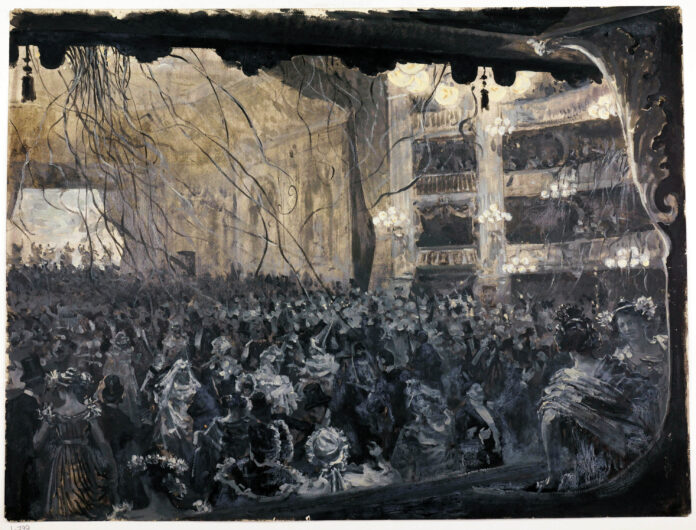




International Conference organized by
Centro Studi Opera Omnia Luigi Boccherini
Research Group ERASMUSH, University of Oviedo
————
Oviedo, Edificio Histórico de la Universidad
15-17 May 2025
CALL FOR PAPERS
The Centro Studi Opera Omnia Luigi Boccherini and the Research Group ERASMUSH of the University of Oviedo (Spain) are pleased to promote the symposium « The Management of Nineteenth-Century Opera Houses », to be held from 15 until 17 May 2025.
This conference wishes to explore the complex world of opera house management in the nineteenth century. The business model of the opera house can be traced back to 1637, when the first paid public theatre opened in Venice: the Theatre of San Cassiano. This model then spread rapidly and became firmly established in the eighteenth century, remaining substantially in force throughout the nineteenth century.
In the latter century, great importance was given to the figure of the impresario, who usually put together a company of singers to offer them to the ownership of a theatre, committing to have a certain number of operas performed in a certain period: the so-called season. The impresario directly commissioned composer and librettist for new operas, although at other times he provided reruns of an already completed performance.
The impresario, however, was not an entrepreneur in the modern sense, because he almost never relied solely on personal capital: most theatres, in fact, received funding from municipalities or nobles, owners of stages, or royalty. Based on the funding offered, the impresario organized the season, determining the cast, expenses for the orchestra, sets and costumes, and also calculating his profit margin.
Although the production system did not change substantially during the nineteenth century, historical and political events influenced the activity of theatres. Indeed, opera was an instrument of consensus, social control and political assertion. The very form of opera houses, with stalls and several tiers of boxes, reflected the hierarchical order of society.
Moreover, during the nineteenth century, the production system of opera houses was influenced by the new role assumed by music publishers, especially in Italy. The issue of copyright developed prominently, and publishers tried to impose their choice of works to be performed, fostering the emergence of a repertoire. The birth of specialised music journals also influenced the public, through increasingly technical criticism, and through a complex system of reviews that tended to support the works of one or another publisher.
The programme committee encourages submissions within the following areas, although other topics are also welcome:
- Organisation, Management and Financing of Opera Houses
- Musical Impresarios during the Nineteenth Century
- Private and Public Investment
- Companies between Centres and Peripheries
- Singer, Musical Agent, Manager
- The Relationships between Composer and Sponsor
- Operatic Networks inside and outside Europe
- Strategies for Promoting Performances
- The Management of Opera Orchestras
- Subscriptions and Societies
- Sound Spaces and Acoustics in Opera Houses
- Opera, Politics and Power
Programme Committee:
- Francesc Cortès (Universitat autònoma de Barcelona)
- María Encina Cortizo (Universidad de Oviedo)
- Roberto Illiano (Centro Studi Opera Omnia Luigi Boccherini)
- Fulvia Morabito (Centro Studi Opera Omnia Luigi Boccherini)
- Massimiliano Sala (Centro Studi Opera Omnia Luigi Boccherini)
- Ramón Sobrino (Universidad de Oviedo)
Keynote Speakers:
- Francesc Cortès (Universitat autònoma de Barcelona)
- Arnold Jacobshagen (Hochschule für Musik und Tanz Köln)
The official languages of the conference are English, French, Italian and Spanish. Papers selected at the conference will be published in a miscellaneous volume.
Papers are limited to twenty minutes in length, allowing time for questions and discussion. Please submit an abstract of no more than 500 words and one page of biographical information.
All proposals should be submitted by email no later than Sunday ***16 February 2025*** to <conferences@luigiboccherini.org>. Please include your name, contact details (postal address, e-mail and telephone number) and (if applicable) your affiliation with your proposal.
The committee will make its final decision on the abstracts by the end of February, and contributors will be informed immediately thereafter. Further information about the programme and registration will be announced after that date.
For any additional information, please contact:
Dr. Massimiliano Sala
conferences@luigiboccherini.org
www.luigiboccherini.org









